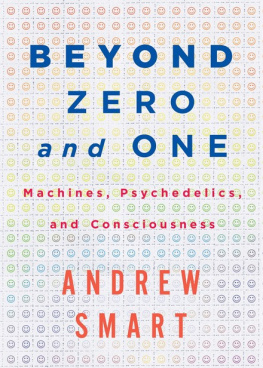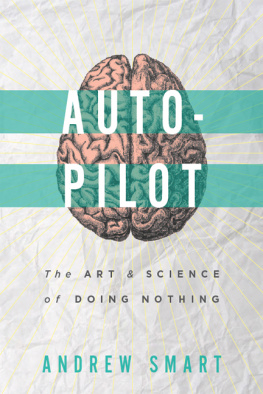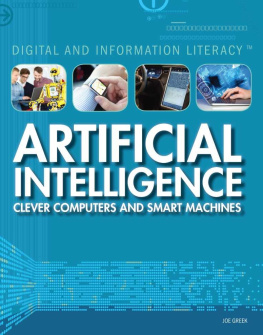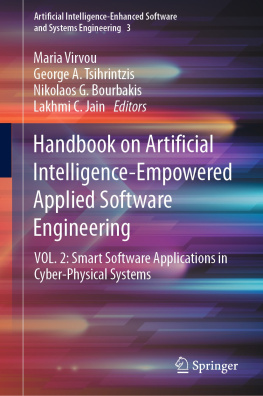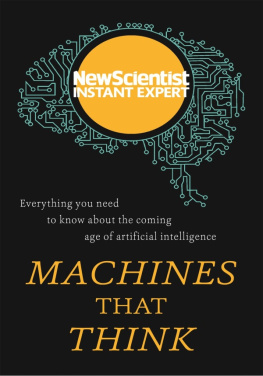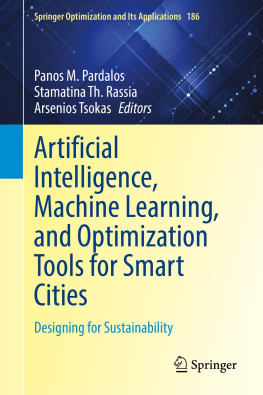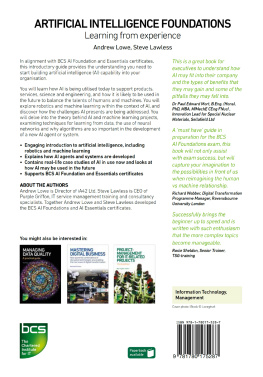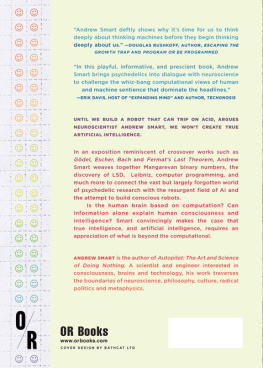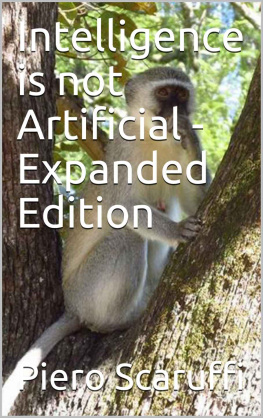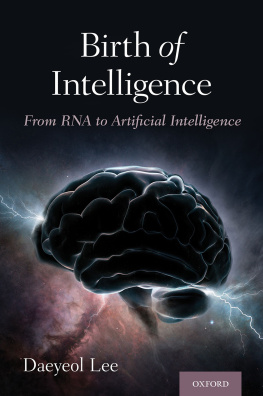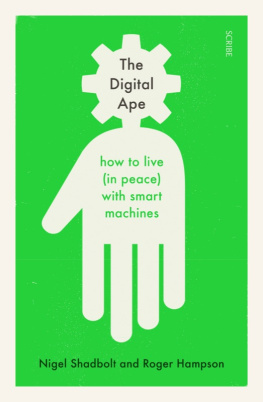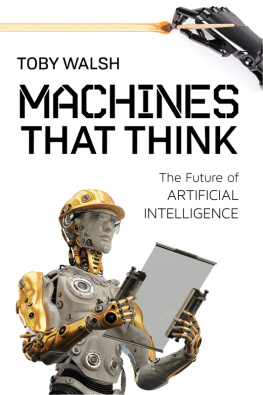Philosophy, psychedelics, robots, and the future; consciousness and intelligence, what else do you desire? Here you will see why those machines that reach singularity will be smarter than us and take over the worldand shall need to be consciousand maybe they can only be conscious if they are human enough. The thesis of the book, and the path shown us by Smart, leads to a great trip, of imagination and philosophy, of maths and neuroscience.
DR. TRISTAN BEKINSCHTEIN, LECTURER, DEPARTMENT OF PSYCHOLOGY, UNIVERSITY OF CAMBRIDGE
Andrew Smart deftly shows why its time for us to think deeply about thinking machines before they begin thinking deeply about us.
DOUGLAS RUSHKOFF, AUTHOR, ESCAPING THE GROWTH TRAP AND PROGRAM OR BE PROGRAMMED
In this playful, informative, and prescient book, Andrew Smart brings psychedelics into dialogue with neuroscience to challenge the whiz-bang computational views of human and machine sentience that dominate the headlines.
ERIK DAVIS, HOST OF "EXPANDING MIND" AND AUTHOR, TECHGNOSIS

2015 Andrew Smart
Printed by OR Books, New York and London
Visit our website at www.orbooks.com
All rights information: rights@orbooks.com
All rights reserved. No part of this book may be reproduced or transmitted in any form or by any means, electronic or mechanical, including photocopy, recording, or any information storage retrieval system, without permission in writing from the publisher, except brief passages for review purposes.
First printing 2015
Cataloging-in-Publication data is available from the Library of Congress.
A catalog record for this book is available from the British Library.
ISBN 978-1-68219-006-7 paperback
ISBN 978-1-68219-007-4 e-book
Text design by Bathcat Ltd. Typeset by AarkMany Media, Chennai, India.
CONTENTS
CHAPTER 0001
BASEL, SWITZERLAND
If the doors of perception were cleansed everything would appear to man as it is, infinite.
William Blake
Its not like its the end of the worldjust the world as you think you know it.
Rita Dove
The great organic chemist Albert Hofmann was fond of saying that luck favors the prepared. Because he was Swiss, there was little for which Hofmann did not prepare. Meticulous and well-organized, Hofmann indeed made one of his most famous discoveries through an amazing accident and stroke of luck. The famous story is that in 1943, while Hofmann was re-synthesizing lysergic acid diethylamide-25, some of the formulation accidentally got on his hand. He soon began to experience the first inkling of the psychedelic effects of LSD, writing in his lab notes:
Last Friday, April 16, 1943, I was forced to interrupt my work in the laboratory in the middle of the afternoon and proceed home, being affected by a remarkable restlessness, combined with a slight dizziness. At home I lay down and sank into a not unpleasant intoxicated-like condition, characterized by an extremely stimulated imagination. In a dreamlike state, with eyes closed (I found the daylight to be unpleasantly glaring), I perceived an uninterrupted stream of fantastic pictures, extraordinary shapes with intense, kaleidoscopic play of colors. After some two hours this condition faded away.
Initially confused by what could have caused this episode, Hofmann thought it might have been the solvent he used, because it was similar to chloroform. If it had been the crystallized LSD itself, it was an extremely potent substance given the small amount that his body had absorbed. Being a thorough and above all curious scientist, Hofmann planned a self-experiment to determine if the LSD had induced his bizarre altered state. Guessing based on the known activity of similar ergot alkaloid substances from which LSD is derived, Hofmann prepared 250 micrograms of LSD and ingested it diluted in water. On April 19, 1943, his lab journal read:
4/19/43 16:20: 0.5 cc of 1/2 promil aqueous solution of diethylamide tartrate orally = 0.25 mg tartrate. Taken diluted with about 10 cc water. Tasteless.
This was the smallest dose he estimated might produce an effect. Doubting that such a small amount would produce any effect at all, he planned to increase the dose gradually until he found one that worked. As it turned out, a quarter of a milligram of LSD is an enormous dose of an extremely active compound. The rest is, of course, psychedelic history, to which we will return throughout this book.
I wrote this book in Basel, Switzerland. I spent a few months working in the same building where Hofmann performed his historic psychedelic experiment. Basel is also where Friedrich Nietzsche taught at the university and wrote some of his great works. These historical facts may not appear related to each other at first thought, or to the title of this book. But this is a story about a philosophical thread that I started in Basel and that ends with Nietzsche, Hofmann, the LSD molecule, hallucinations, binary numbers, machine consciousness, and superintelligence.

Ray Kurzweil, director of engineering at Google, predicts that by the year 2045 we will reach the technological singularity. This is the point at which computers become superintelligent and their intelligencetheir comprehension and intellectual independencewill continue to grow exponentially, far surpassing ours. The Swedish philosopher Nick Bostrom has already written a book called Superintelligence: Paths, Dangers, Strategies about how to deal with the possibility that we may lose control of the very technology we invented.
The last few years have produced an increasing amount of popular discourse about the singularity, which describes events in technological development that would lead to human-level machine intelligence, and would lead to computers achieving superintelligence. Following this occurrence, there would come an explosion of intelligent machines with cognition so advanced that it poses an immediate existential risk to humanity. Machine intelligence would learn how to improve independently of human programmers; it would spawn other machines capable of improving their intelligences, resulting, some argue, in the end of the human race.
Recent books such as Superintelligence, Kurzweils How to Create a Mind: The Secret of Human Thought Revealed and The Singularity Is Near: When Humans Transcend Biology, and Martine Rothblatts Virtually Human: The Promiseand the Perilof Digital Immortality describe with often breathless enthusiasm the near future in which robots, whole brain emulations, mindclones, superintelligences, and cyberconsciousnesses live either harmoniously or not-so-harmoniously with or as part of their human inventors. I am beginning to suspect that the singularity refers simply to an explosion of books about artificial intelligence.
The more immediate and practical threat posed by AI may be economic. There are increasing fears that robots are going to cause widespread unemployment in the near future. Martin Ford argues in Rise of the Robots that even professional jobs in the law, software engineering, and healthcare will soon be eaten by software. These areas have traditionally required years of training and education for humans to acquire the necessary skills. We assume that competence in professional jobs requires a high degree of human judgment. But Ford convincingly shows that automation is invading every aspect of our working lives. As artificial intelligence improves, this trend toward workforce automation will only accelerate.

